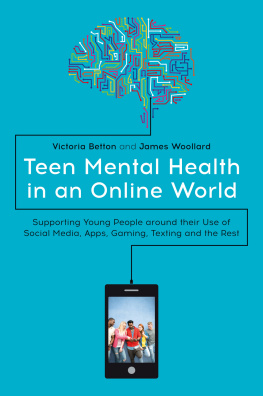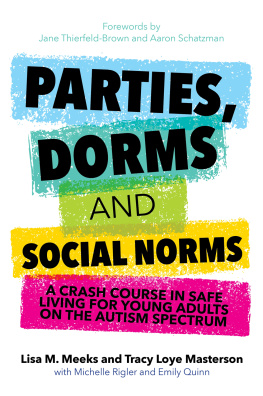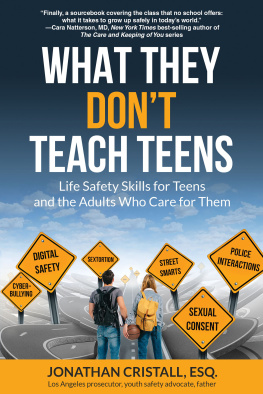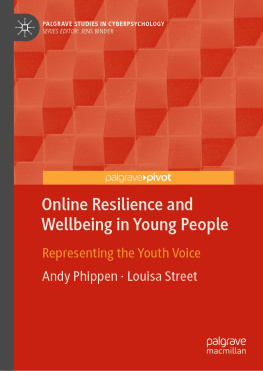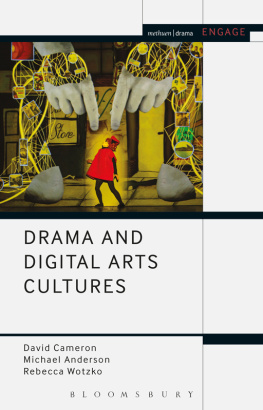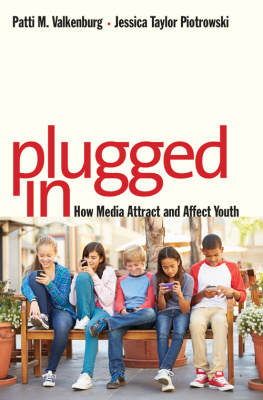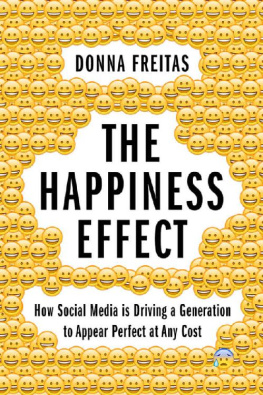
Teen Mental Health
in an Online World
Supporting Young People around their Use of
Social Media, Apps, Gaming, Texting and the Rest
Victoria Betton and James Woollard

Jessica Kingsley Publishers
London and Philadelphia
Contents
A note about terminology
In this book we use a number of terms that we explain here.
This book is aimed primarily at anyone working with teenagers who have mental health problems. You may be working in health, education, social work, the criminal justice system, or elsewhere. We use the word practitioner as a general term to cover these sorts of roles. This book is not specifically intended for mental health practitioners, although many of our case studies and interviews are with professionals who have expert knowledge and experience in this field.
Whilst this book is not specifically orientated towards parents and carers , we hope that it will be of interest to any adults who look after or who are connected informally with young people who have mental health problems.
Throughout the book we refer to a number of different terms to describe aspects of the internet. We use the term digital tools or technologies to refer to mobile applications (apps) that sit on smart devices. We use the term social media to describe platforms whereby people create and exchange content online. We use the phrase internet of things to refer to sensors and wearables that connect to the internet. When we use the term internet we are using it as a catch-all for online information and interactions.
We understand that terms used to describe mental distress are problematic and often contested. In this book we have avoided focusing on specific diagnoses or medicalised language except where relevant to the point we are making. We use the phrase mental health problems as a general term which we hope will be meaningful to practitioners who work in a range of settings beyond health care. We sometimes use the phrase vulnerable teens because the Childrens Commissioner has included experience of mental health problems as an aspect of vulnerability amongst children and young people (Bright, 2017).
We challenge the notion that young people are digital natives a term commonly employed to describe those who have grown up with the internet. Like a number of academics in the field, we believe this is not a useful way to think about young peoples use of the internet (Jenkins, Ito and Boyd, 2017; Livingstone, 2014). The phrase tends to obfuscate the nuances and subtleties as well as the diversity of online behaviours we have found. It also assumes that adults, as supposed digital immigrants , have nothing to offer their counterpart natives. We do not believe this to be the case and find it an oversimplification which does not help adults feel resourceful in helping young people in respect of their engagement with the internet. We believe it is critical that practitioners helping young people with mental health problems take responsibility for understanding how they use the internet. This can only be achieved through an inquiring orientation rather than a passive mindset.
Chapter
Introduction
What if we approached the internet as a resource to be deployed rather than solely as a problem to be solved (Jenkins et al., 2017)? What if we shifted our focus from the deficits of young peoples online lives to an asset-orientated approach which seeks to identify young peoples strengths and how we can enhance them? And what would this mean for practitioners working with young people who have mental health problems? Perhaps there are ways to make sense of young peoples connected lives that enable us to be better and more effective practitioners. Perhaps we can focus our efforts on creating a society in which young people can thrive online and develop better mental health and wellbeing as a result. In this book we combine the voices and lived experiences of young people with what the evidence tells us about this important topic. Young peoples points of view often get drowned out in the melee of popular media commentary about digital media and so we have endeavoured to put them at the centre of this book generating insights into their attitudes, motivations and concerns.
As digital technologies increasingly permeate our everyday lives, it is imperative that practitioners seek to understand what this means for vulnerable teens. This imperative is born out of a significant shift in teen behaviours whereby young people imperceptibly blend and weave together their online and offline existence. Digital media provide an emerging context for growing up that is unfamiliar to Generation X (who were born between the early sixties and early eighties). If as practitioners we fail to grasp this emergent digital sphere, we will be less equipped to offer effective support; we may say and do things that have a negative impact on the very young people we are there to help. Rather than seeking to avoid that which we do not fully understand, as practitioners we should embrace a courageous vulnerability by stepping into the reality of young peoples connected lives and seeking to understand it from their point of view.
Much existing research focuses on the risks posed by digital media to young people and practitioners alike. Popular discourse is often characterised by a moral panic in which the internet is conceptualised as essentially harmful and needing to be contained and controlled (Common Sense, 2016; Gabriel, 2014). Adult views about young peoples online behaviours, typically characterised by concerns about risk and antisocial behaviours, dominate public debate and crowd out the lived experience of teens (Third et al. , 2014). Adolescent years are a time of expanded internet use along with developmental traits such as increased propensity for risk-taking, impulsivity, sensation-seeking and sexual interest. It is for this reason that we believe a focus on the connected lives of vulnerable adolescents is an important subject for practitioners to explore and understand.
In this book we focus specifically on the connected lives of teens and we investigate how practitioners can leverage digital technologies to promote resilience and wellbeing in young people, whilst understanding and managing associated risks. In doing so, we draw on both empirical evidence and firsthand accounts from our conversations with young people. A global research project into childrens digital rights (Third et al. , 2014) found that young people overwhelmingly experience the internet as a powerful and positive influence in their day-to-day lives:
Children see digital media as crucial to their rights to information, education and participation. By engaging with digital media, they learn new skills and develop their talents; they become informed citizens of the world who can contribute meaningfully to their communities; and they foster friendships, family ties and a sense of community and belonging. These things are important to their resilience and wellbeing. (Third et al. , 2014, p.12)
Through interviews and case studies, we show how teens are using social media, digital technologies and the internet in creative and imaginative ways to manage their mental health and improve their wellbeing. We illuminate nuanced and diverse online practices which challenge what can be an oversimplified dichotomous narrative of good versus bad. As Professor Simon Wesley, previous president of the Royal College of Psychiatrists, asserts:
I am sure that social media plays a role in unhappiness, but it has as many benefits as it does negatives. We need to teach children how to cope with all aspects of social media good and bad to prepare them for an increasingly digitised world. There is real danger in blaming the medium for the message. (quoted in Campbell, 2017)
Next page
